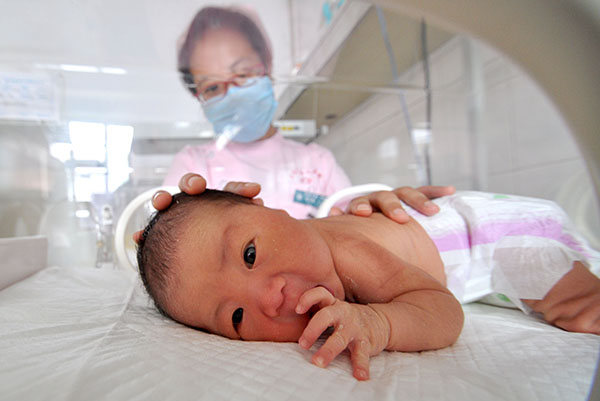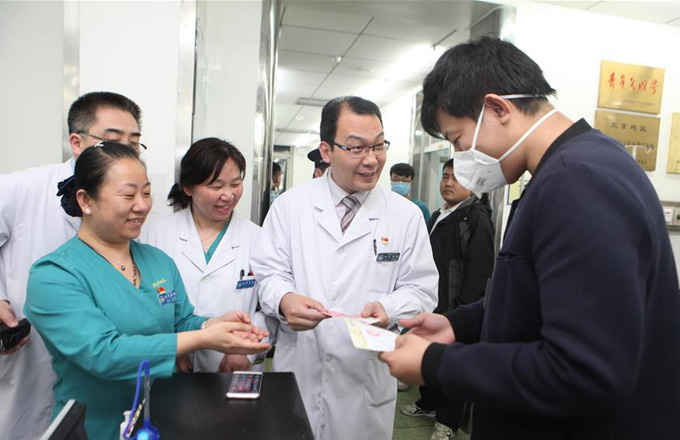Unnecessary C-sections come under scrutiny in Anhui province
 |
|
A nurse takes care of a new-born baby at the No.2 Hospital in Handan city, North China's Hebei province in this Oct 1, 2014 file photo. [Photo by Hao Qunying/Asianewsphoto] |
The health authority in Anhui province has issued China's first provincial guide-line for cesarean sections, aimed at bringing down the excessively high level of such procedures in the province.
The guideline listed 14 types of medical requirements for a C-section, such as fetal distress (for lack of oxygen, for example) or abnormality of the birth canal.
The guideline was issued to all medical institutions in the province in July, according to Wang Hai, chief of maternal health at the Anhui provincial Bureau of Health and Family Planning."Doctors are duty-bound to refuse to perform a C-section without the presence of a clear need," Wang said at a news conference on Monday.
Doctors can perform a C-section when there is no medical requirement if the pregnant woman or her family demands it, and only after receiving signatures from both the pregnant woman and her doctor in charge, Wang said.
The guideline is expected to reduce the rate of C-sections in the province, which was about 40 percent last year, to 30 percent in the next three to five years, the provincial family planning bureau said.
Forty-six percent of women in China deliver by C-section, one of the highest rates in the world, according to the World Health Organization. The organization recommends a rate of no higher than 15 percent.
Cesarean sections are necessary in emergency cases, but excessive use of unnecessary surgeries, such as for giving birth on a lucky day, poses serious health risks to mothers and babies, according to the Anhui health authority.
Cai Wenzhi, deputy dean of the School of Nursing at Southern Medical University in Guangzhou, said that in practice many hospitals are trying to reduce C-sections, but government intervention will be more effective.
"The move by Anhui's health commission is a good start for other areas in China," she said. With the guideline, doctors in Anhui province will find it easier to refuse unreasonable requests for C-sections from their patients.
"Hospitals charge much more for C-sections than for natural birth," she said. "C-sections are also faster, while midwives may have to keep waiting for more than 20 hours for a natural delivery."

















